Futurescapes
A Symposium in New Media, Technology, and the Humanities
Meta.Morf 2016 / Dragvoll, Trondheim, March 14–15, 2016
http://typecraft.org/tc2wiki/Futurescapes
Futurescapes is part of the Norwegian University of Science and Technology’s (NTNU) Interdisciplinary Humanities Forum Initiative and an accompanying event of the 2016 Meta.Morf Art + Technology Biennale devoted to the technology of outer space and interstellar travel.
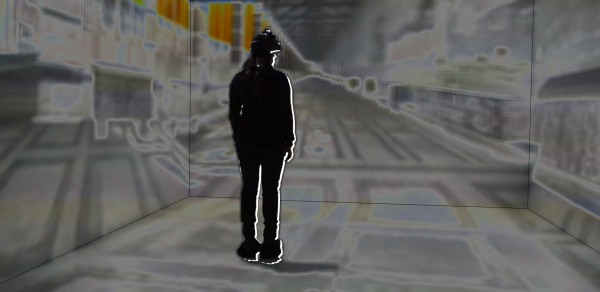
Kari Kraus | Tobias Blanke | Andreas Philippopoulos-Mihalopoulos | Dorothee Beermann | Hanna Musiol
Futurescapes shares the Biennale’s focus on interplanetarity, time, and the cosmic beyond, and on humans who dream, invent, construct, and destroy their way into the future, but with an explicit commitment to a meta, critical approach to technological, cultural, artistic, and scholarly innovation. The Symposium will also explore new locations and entanglements of the humanities, new media, and technology, and offer a place for diverse scholars and educators to showcase their cosmic or future-oriented work across disciplinary boundaries. At Futurescapes, in other words, we will not only learn new mixed-media methodologies but also interrogate critically how and with what tools humanists and technologists communicate with one another, think big ideas, and make things. Finally, Futurescapes will address the ethical, legal, and political implications of such work, and how it bears on the futures of our diverse fields.
SYMPOSIUM STREAMS
Futurescapes participants will showcase projects in several formats: panel talks, lightning shorts, workshops, installations, and demos, organized in thematic streams.
Digital humanities, interdisciplinary methodologies, and new research questions. How have the humanistic thought and creative practices associated with fine arts, music, and popular culture transformed neuroscience, information technology, communication, and computational sciences? Conversely, how has the digital turn transformed the supposedly “analogue” disciplines of literary studies, linguistics, history, and philosophy? What do text mining, data visualization, data sonification, topic modeling, textual annotation, and digital curation offer the humanities? What are the new research questions they enable us to ask? What are the benefits and limitations of this digital and big-data turn and these cross-disciplinary methodologies?
Communication, networks, interfaces. Different disciplines—linguistics, media studies, sociology, history, computational sciences—examine how humans communicate with one another. New technologies are now helping us create new languages, sounds, interfaces, and modes of human communication. What are these new “languages” and communication networks that propel us into the future? Who participates in these new media conversations? What new ways of seeing, listening, sensing do they engender?
KEYNOTE SPEAKERS
Kari Kraus
Kari Kraus is an Associate Professor in the College of Information Studies and the Department of English at the University of Maryland, and an affiliated faculty member with the UMD Human–Computer Interaction Lab. Kraus’s work focuses on new media and the digital humanities, digital preservation, game studies and transmedia storytelling, and speculative design. Her diverse collaborations and projects include preserving virtual worlds, Alternate Reality Games (ARGs), storytelling in the service of education and design, and Exploring Invisible Traces in Historic Recordings, which used audio forensics techniques to help recover provenance information about undated recordings. In 2015, she entered into a Space Act Agreement with NASA. Kraus writes occasionally for the New York Times and the Huffington Post.
http://www.karikraus.com
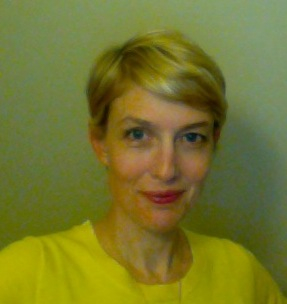
Photo by Kari Kraus
Andreas Philippopoulos-Mihalopoulos
Andreas Philippopoulos-Mihalopoulos, LLB, LLM, PhD, is Professor of Law & Theory at the University of Westminster, and founder and Director of The Westminster Law & Theory Lab. He holds permanent professorial affiliations with the Centre for Politics, Management and Philosophy, Copenhagen Business School, and the University Institute of Architecture, Venice. His research interests are interdisciplinary and include space, bodies, radical ontologies, post-humanist studies, critical autopoiesis, literature, psychoanalysis, continental philosophy, gender studies, art theory, and their connection to the law. Andreas is also a practicing artist, working on photography, text and performance under the name of picpoet. His academic books include the monographs Absent Environments (2007), Niklas Luhmann: Law, Justice, Society (2009), Spatial Justice: Body Lawscape Atmosphere (2014), and the edited volumes Law and the City (2007), Law and Ecology (2011), Observing Luhmann: Radical Theoretical Encounters (co-edited with Anders La Cour, 2013), and Knowledge-creating Milieus in Europe: Firms, Cities, Territories (co-edited with Augusto Cusinato, 2015).
http://www.westminster.ac.uk/about-us/our-people/directory/philippopoulos-mihalopoulo-dr-andreas.
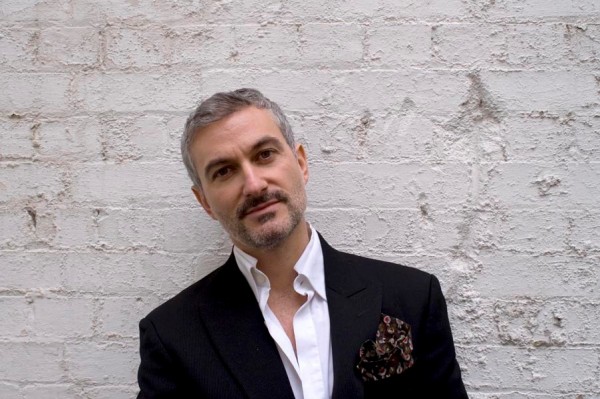
Photo by S. Kyratzis
Tobias Blanke
Tobias Blanke is a Senior Lecturer at the Centre for e-Research at King’s College in London. Blanke’s digital humanities work is informed by his diverse backgrounds in philosophy and computer science, as well as his non-academic experience as a lead analyst and developer in a data warehouse at Credit Suisse London, Free University Berlin, and several smaller media companies. Blanke has written widely on the intersections of humanities research and computer science, and has received a number of major international conference awards. In 2012, he was a Visiting Professor at the Göttingen Centre for Digital Humanities. Since 2007, Blanke has led several multi-disciplinary research projects, and he now serves as a member of the Board of Directors of DARIAH-EU, the leading EU platform for digital research in the arts and humanities. http://www.kcl.ac.uk/artshums/depts/ddh/people/academic/blanke/index.aspx.
ORGANIZERS
Dorothee Beermann (DE)
Dorothee Beermann is a Professor of Linguistics at the Norwegian University of Science and Technology. She works with language across disciplines, theories and models, and does linguistic tool development for descriptive and analytic work in linguistics. She is one of the developers of TypeCraft, a virtual environment for linguistic work online (http://typecraft.org/tc2wiki/Main_Page). She sees Open Access as the new default, and tries to make linguistic data in the form of Interlinear Glossed Text more accessible to research. She likes running at the beach, and a little cottage in the mountains.
https://www.ntnu.no/ansatte/dorothee.beermann
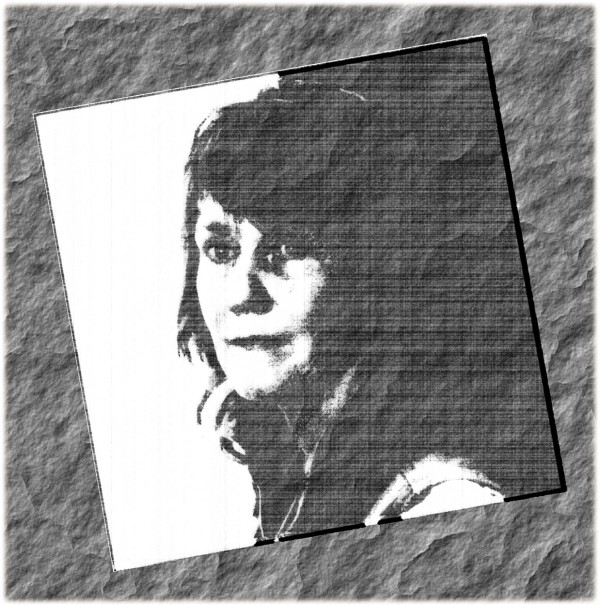
Photo by Dorothee Beermann
Hanna Musiol (PL)
Hanna Musiol is an Associate Professor of English literatures at the Norwegian University of Science and Technology. Her research interests include American and Anglophone literatures, visual studies, archive and curation, critical pedagogy, digital humanities, and theory, with emphasis on political ecology, human rights, and decolonization. She has published on widely on aesthetics and rights in Journal of American Studies, College Literature, Journal of Labor and Society, Oil Culture (University of Minnesota Press), Human Rights and Literature (Routledge), and Victims and Agents (Birkbeck Law Press). She also associate-edited Cultural Studies: An Anthology (Blackwell) and is the creator of the (Im)Migrant Experience Initiative (IEI), an open-access digital archive devoted to the preservation of narratives of migration and displacement at the University of Massachusetts Boston. In addition to her research, Musiol has developed interdisciplinary pedagogical collaborations with community and academic partners in Europe and the US, including, the global classroom initiative Just Fiction, co-taught on two continents with Alexandra Schultheis-Moore from the University of North Carolina at Greensboro.
https://www.ntnu.no/ansatte/hanna.musiol
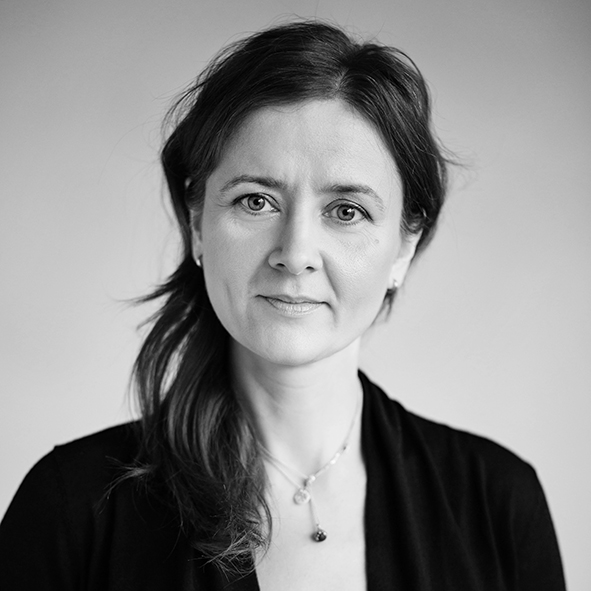
Photo by Anna Trojanowska
PROGRAM
SYMPOSIUM SCHEDULE / MARCH 14 & 15, 2016
Day One @ Dragvoll campus, 8.30–18.00
– Opening address, keynote talks
– Panel talks & Lightning Shorts
– Exhibits & Installations
– Gunnerus Library Archive and 3D tour / the MuBil Laboratory
Day Two @ Dragvoll campus, 8.00–18.00
– Keynote talks
– Panel talks & Lightning Shorts
– Exhibits & Installations
Day Two @ KiT Gallery, 20.30–23.00
– Meta.Morf, Futurescapes, and KiT Social Mixer
SPONSORS AND PARTNERS
Futurescapes is organized by Dorothee Beermann and Hanna Musiol in partnership with Kunstakademiet i Trondheim (KiT), Meta.Morf, and Trondheim Electronic Arts Center (TEKS). The event is supported by the Department for Language and Literature, the Humanities Faculty at NTNU, the Norwegian Research Council and NTNU libraries: the Dragvoll Library and the Gunnerus Library, and






